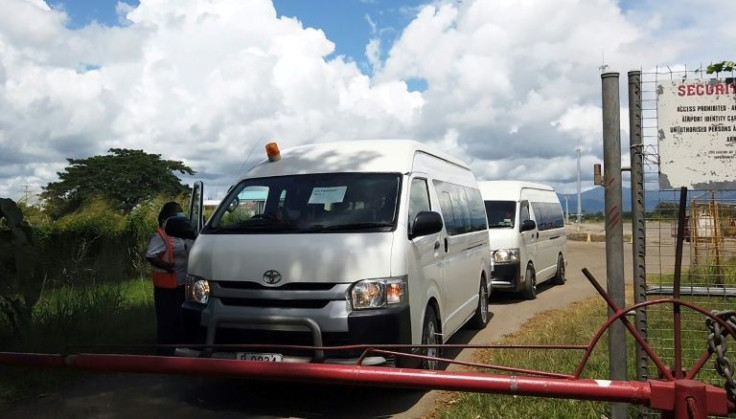US, China Court Solomon Islands After Defence Deal
US and Chinese diplomats fought for the affections of the Solomon Islands on Friday after the small island state shocked its American allies by signing a defence pact with Beijing.
The Pacific state's traditional allies the United States and Australia are deeply suspicious of the deal, fearing it may give China a military foothold in the South Pacific.
A White House delegation landed at the airport in the capital Honiara and was ferried into town in a white minibus, said an AFP correspondent at the scene, ahead of planned meetings with the government.
On the same day, China's ambassador to the Solomon Islands was not far away, attending a ceremony with Prime Minister Manasseh Sogavare to hand over an elite, blue-coloured running track.
It is part of a China-funded national stadium complex, reportedly worth US$53 million, that will host the 2023 Pacific Games for the first time in the island state of 800,000 people, many of whom live in poverty.
"On behalf of the Chinese government and people of China, we congratulate the government of the Solomon Islands," said China's ambassador, Li Ming, as he delivered the latest investment to be lavished by Beijing on a Pacific nation.
As its influence grows, Beijing announced this week it had signed the undisclosed security pact with Honiara.
A draft of the deal shocked countries in the region when it was leaked last month, particularly measures that would allow Chinese naval deployments to the Pacific nation, which lies less than 2,000 kilometres (1,200 miles) from Australia.

The Pacific state's prime minister insists the pact will not lead to China building a military base, but this has done little to assuage the concerns of the United States and Australia.
Too late to stop the deal, the White House said its diplomatic delegation was visiting Fiji, Papua New Guinea and the Solomon Islands this week to "ensure our partnerships deliver prosperity, security and peace across the Pacific Islands and the Indo-Pacific".
The US diplomatic team -- led by the National Security Council's Indo-Pacific coordinator Kurt Campbell and assistant secretary of state for East Asian and Pacific affairs Daniel Kritenbrink -- landed in Honiara just three days after the security pact with China was announced.
"We are concerned by the lack of transparency and unspecified nature of this agreement, which follows a pattern of offering shadowy, vague deals with little regional consultation in fishing, resource management, development assistance, and now security practices," a State Department official told AFP in Washington this week.
"The agreement has been moving forward for some time. The reported signing does not change our concerns."
The Solomon Islands' leader says his government signed the deal "with our eyes wide open". But he has declined to tell parliament when the signed version will be made public.
Sogavare's government severed ties with Taiwan in September 2019 in favour of diplomatic relations with China, unlocking investment but stoking inter-island rivalries.
Last November, protests against Sogavare's rule sparked violent riots in the capital, during which much of the city's Chinatown was torched.
While the unrest was partly fuelled by poverty and unemployment, anti-China sentiment has also been cited as playing a role.
© Copyright AFP 2024. All rights reserved.





















